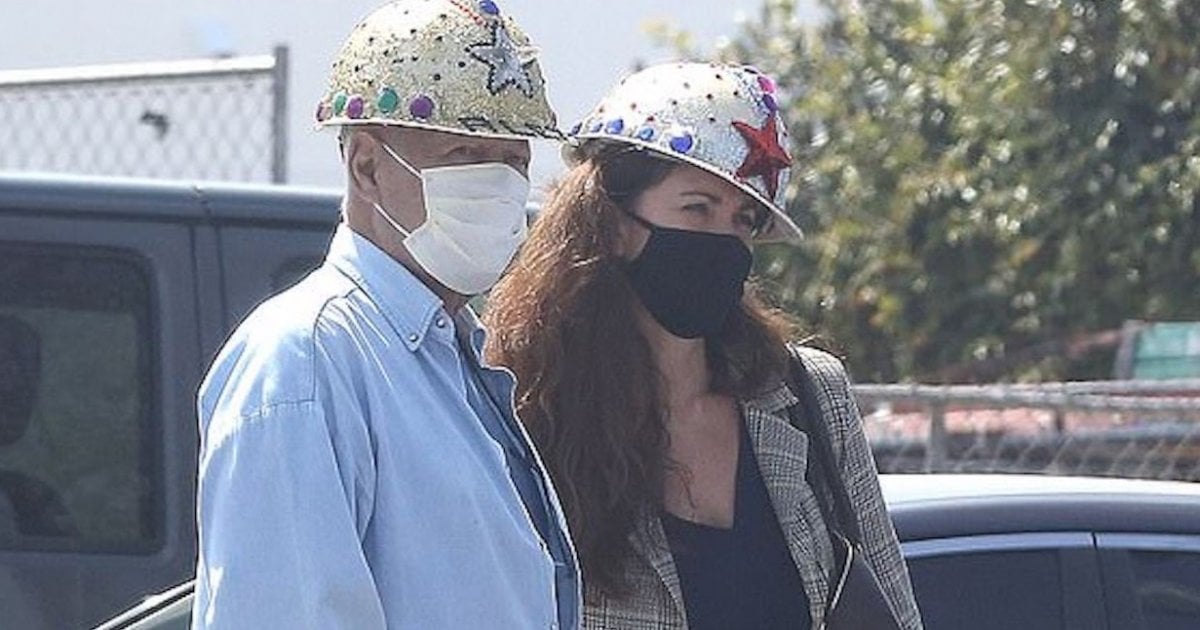Cancer survivors and fans were thrilled to see America’s favorite home-handyman, Alex Trebek, 79, and wife, Jean, 56, enjoying a rare outing to Home Depot yesterday. The couple wore face masks and matching hard hats, playfully decorated with stars and craft-gems. Ever
RELATED: Stop Stalking Alex Trebek! Huge Fan Support After Publication of Deeply Insensitive Photos
Read More"Flipping a home has always been on my bucket list,” Emily shared on Insidewink. “When I bought the first house, I asked for my Dad's help because he's extremely handy and really knows a lot about construction. He worked at the jobsite every single day and taught me so much. It really meant a lot to me how much time he dedicated to the project."He’s also said he’s eager to get to the studio and return to his post at “Jeopardy!”
Trebek Eager To Return To Work
Trebek, 79, was diagnosed with stage 4 pancreatic cancer in 2019, and has been undergoing chemotherapy treatments while simultaneously filming new Jeopardy episodes. However, due to COVID-19, the television game show suspended filming in order to keep the staff and audience members safe. In a statement, Trebek’s rep told TVLive that the host is ready to get back on the stage once restrictions are lifted.
“Alex is looking forward to resuming production as soon as we are able to do so,” the rep said. “He's told us he wants to be one of the first shows back in production.”
Pancreatic cancer survivor Joel Naftelberg talks life after treatment
Alex Trebek’s Battle With Cancer
Since his diagnosis in 2019, Trebek has been sharing encouraging health updates with fans, and treatment results have been promising. On the one-year anniversary diagnosis of Trebek’s disease, he announced that he was “beating the odds,” seeing as the one-year survival rate for stage 4 pancreatic cancer patients is 18%. Trebek also admitted that he had experience moments of depressing while going through chemotherapy treatments, and considered giving up at times.
“There were moments of great pain; days when certain bodily functions no longer functioned, and sudden massive attacks of great depression that made me wonder if it really was worth fighting on,” Trebek said. “But I brushed that aside quickly because that would have been a massive betrayal.”
Since Trebek is currently battling cancer, the sudden appearance of COVID-19 has put him at high risk of contracting the virus. However, Ruth Lee, a close family friend of the Trebeks, told Closer Weekly that Trebek is "managing quite well" during the outbreak and is spending his time fixing things around the house and reading.
Navigating A Pancreatic Cancer Diagnosis
Detecting pancreatic cancer early can be a key way to help patients through treatment. The disease has a five year survival rate of just nine percent, it's vital that it's caught as early as possible. Nearly 57,000 people will be diagnosed with pancreatic cancer this year.
Although pancreatic cancer survival rates have been improving for decades, it's still considered to be largely incurable. An exception to this is if the tumor is still small enough and localized enough to be operated on. As most pancreatic cancers are particularly aggressive and progress rapidly, catching it early is critical. The more aggressive the cancer is, the less treatment options are available.
Dr. Anirban Maitra explains why catching pancreatic cancer is crucial.
Pancreatic cancer is an extremely difficult type of cancer to treat, and while some of it is due to it being diagnosed in late stages, treatment in general can be unresponsive. This is because of the stroma which is surrounded by cancer cells and is often resistant to medication, chemotherapy, and radiation. Since it serves as a barrier against treatment, it's more difficult to kill cancer cells in the body.
"Think of pancreatic cancer as an oatmeal raisin cookie and the raisins are actually the cancer cells, and the cookie part is actually all the stroma around it," says. Dr. Allyson Ocean, a medical oncologist at Weill Cornell Medical Center. "And imagine having to navigate through all that stroma for a treatment to be able to get into a cell to kill it. So that's why the treatments just really aren't good enough to penetrate the cancer. But we're improving, we're getting better treatments."
Dr. Allyson Ocean explains why pancreatic cancer is difficult to treat
Learn more about SurvivorNet's rigorous medical review process.


